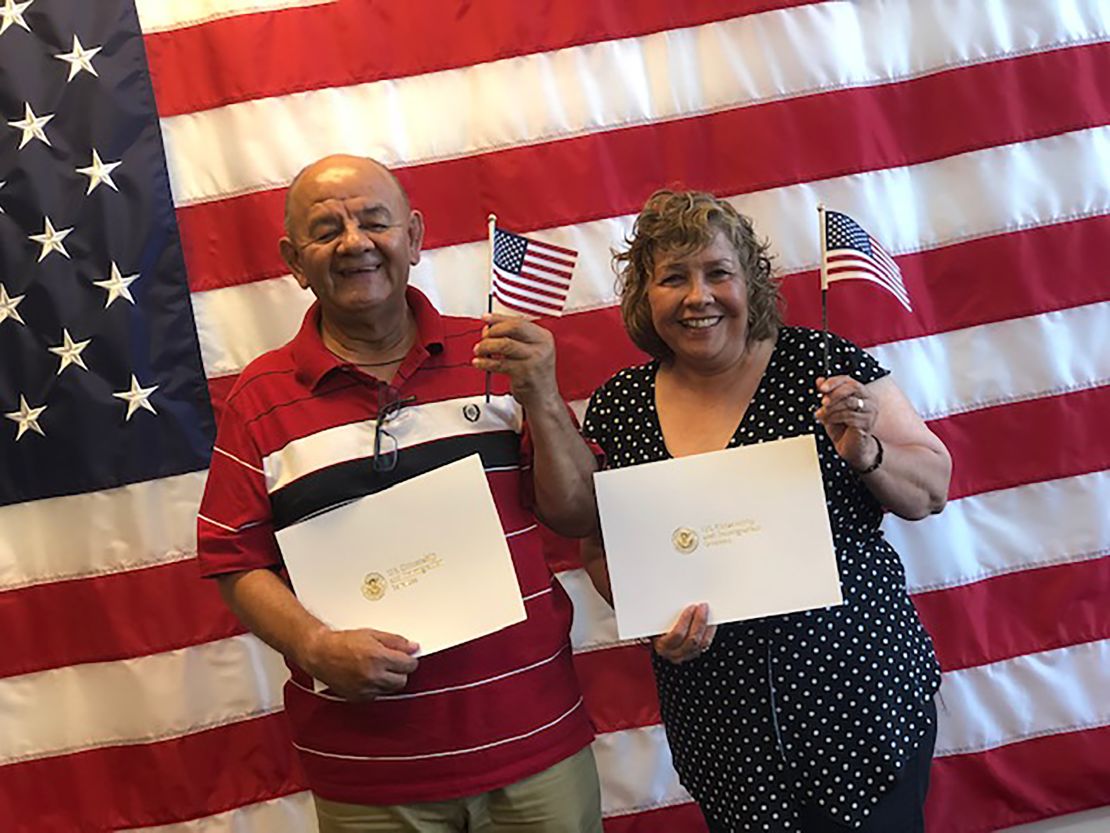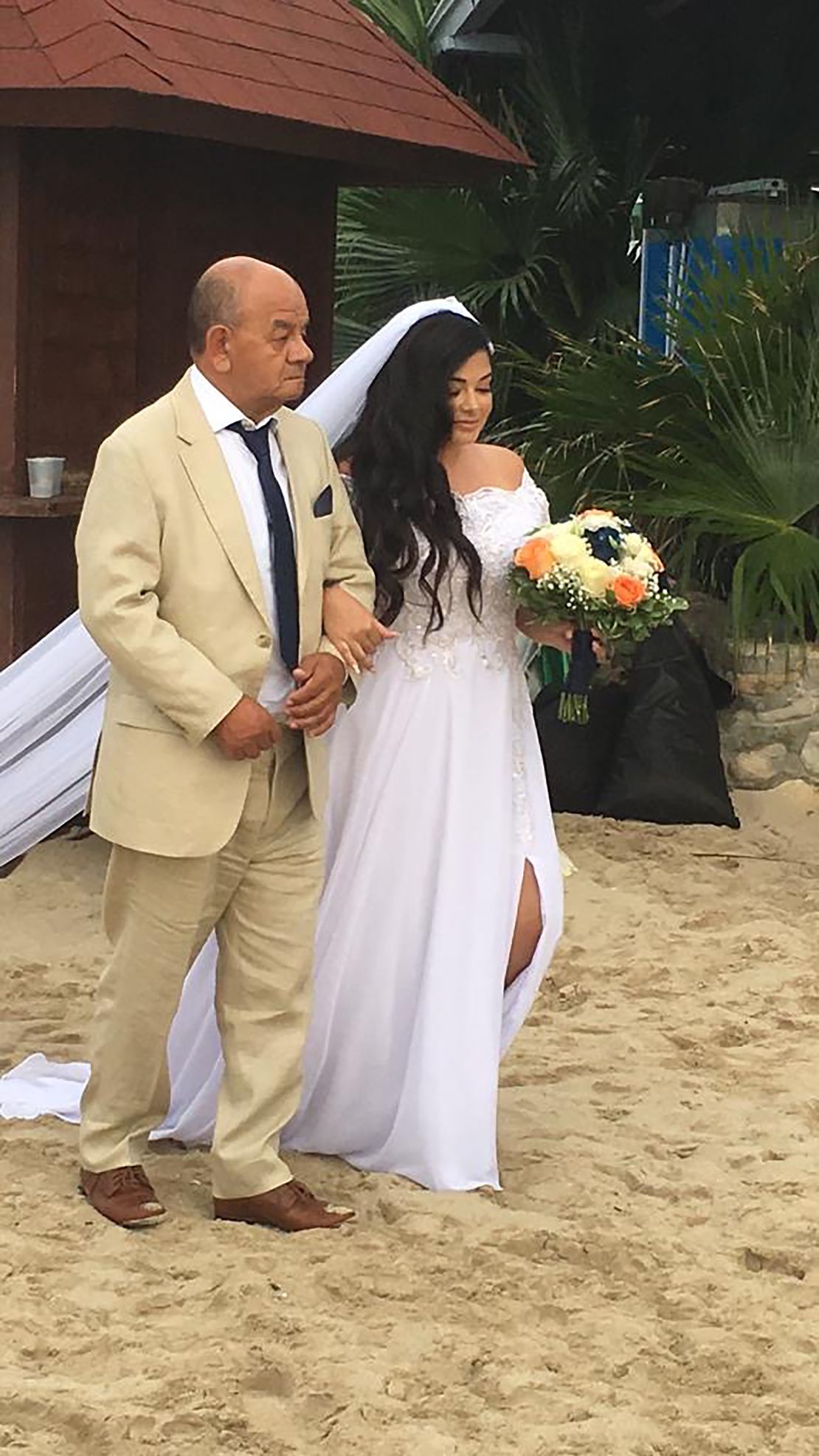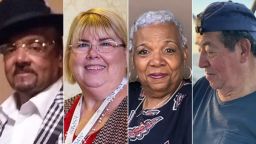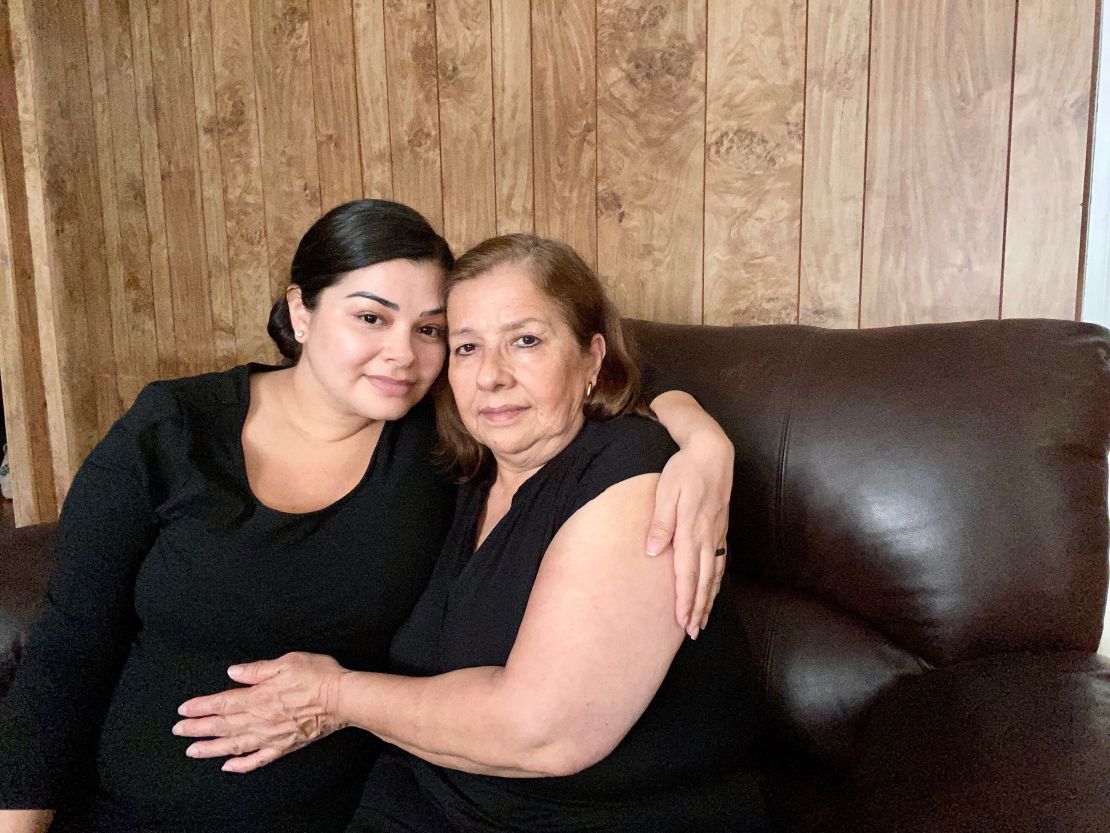Every six hours, Monica V. Garcia trekked from floor to floor of her family’s house to take ice packs and Tylenol to her fever-ridden parents.
The two were quarantining in separate rooms in their Elizabeth, New Jersey, home to avoid spreading Covid-19, which they had contracted in early April.Garcia, who is six months pregnant, gave everything she had to care for them. But it came at a cost.
Like many who come in contact with the virus, she caught it too, according to Garcia’s medical records, provided to CNN.
Garcia and her family are among the thousands of Latinos across the US who have been disproportionately affected by the virus. Latinos make up 18% of the population but about 29% of Covid-19 deaths so far, according to the US Census Bureau and the Centers for Disease Control and Prevention.
The virus left Garcia with 12 days straight of fevers and days of chest pain. To protect her baby, she turned down Hydroxychloroquine and antibiotics in favor of rest, steam baths and an asthma pump to help her breathe, she said.
“I stopped thinking of myself, even though I should because it’s my first baby, my first child,” Garcia told CNN. “The people that know me know that my parents are my world. You’re stuck between the two and I chose them because I didn’t want to lose them.”
Although she and her mother have recovered, the disease took her father from her before he got to meet her firstborn child. Carlos Arturo Garcia passed away at age 70 on April 22.
‘I feel the emptiness’
As Garcia, 33, grieves the loss of her father, she is trying to keep it together for her mother. She’s also continuing her day job of teaching kindergarten, now virtually due to the pandemic.
Meanwhile, her husband is half a world away, awaiting his flight – if it doesn’t get canceled – to the US on May 26.

Garcia and Yasreynolds Rodriguez have been in a long-distance relationship for three years. He lives in the Dominican Republic and the couple was just able to get him a visa to come to the US.
The family requested that the visa be expedited with “everything that I’m going through with my father, that I’m pregnant and that I had Covid,” Garcia said. Luckily, it got approved.
Their baby is due August 3, so the couple hopes Rodriguez is able to be in New Jersey for the birth.
Garcia’s friends are planning a virtual baby shower for her on June 7, so the mom-to-be is trying to look forward to that in between the waves of grief.
Being at home, seeing Carlos Garcia’s spot at the table and knowing he isn’t coming home is hard on both mother and daughter.
“I have to be strong for my mother because she’s having a hard time,” Garcia said. “Every spot, every smell, being in the bedroom, it’s difficult. I try not to break down in front of her.”
Meanwhile her mother, Gloria Garcia, has found herself a widow at age 64.
“That is the hardest thing, to be alone,” Gloria Garcia said. “That is the hardest thing psychologically. I feel the emptiness.”
She and Carlos Garcia met in their native Colombia and were married for 38 years. Both became US citizens last year.
Gloria Garcia said her daughter has been her biggest support system.
“She has been my support because maybe alone I would not have been able to, I would not have been able to continue,” she said.

Catching Covid-19
Family was everything to Carlos Garcia, and he never stopped working to support his wife and two daughters.
After he had a stroke five years ago, his wife took over his job delivering medicine to nursing homes in New York and New Jersey. Carlos Garcia lost some function in the right side of his body, leaving him with a limp and a hampered arm, his daughter said.
“He would still get dressed in his uniform like he used to before the stroke, and he’ll be the passenger, but he knew all the routes,” Garcia said of her dad. “They both will go together but the actual employee was my mom.”
The couple were both essential workers and they kept delivering medicine even as the pandemic continued to spread across the US.
On April 3, Gloria Garcia came home exhausted and the next day, she had a fever of 102 degrees Fahrenheit. That weekend, Carlos Garcia also started feeling tired and getting fevers.
Garcia struggled to keep her parents comfortable with ice packs, Tylenol and lots of soup. She realized she couldn’t do anything to ease their heavy breathing. She had been taking care of them around the clock for a week.
“My mom was going up the stairs and she was running out of breath,” Garcia said. “My dad’s not eating now, and he was hurt. I could tell he was swallowing, and it was hurting him in his chest.”
On Easter Sunday, she called her sister and they admitted both parents to Overlook Medical Center in Summit, New Jersey. Both tested positive for Covid-19, so they were placed in a hospital room together, at Garcia’s request.
“I couldn’t get out of the car because at that point, I already knew I had a fever,” Garcia said. “I knew I had Covid even though I wasn’t already tested.”
Garcia got tested on April 16, and she too learned she had Covid-19, according to her lab results.
While in the hospital, Gloria Garcia started improving within a few days. She helped take care of her husband, even though she was sick, too.
“He would say to me, ‘Gloria, I am thirsty. I want water,’” she said. “So I would say to him, ‘Wait my love, I will give you the water, because I cannot run because I have the IV.’”

The last words her dad said to her
Gloria Garcia was recovering, but her husband’s health was declining. A doctor called Garcia to let her know that her dad needed the care of the ICU.
Knowing the next step, Garcia called her mom with her sister on a three-way call. The siblings needed to talk to their dad before he was transferred.
“I love you,” Garcia told her dad. “Be strong because we love you and you have a new grandchild coming. Maybe it’s a boy like you want, so please be strong.”
“He said, ‘OK I love you,’ and I said, ‘I love you too’ and that was it,” she told CNN, in between tears.

Garcia felt like this was goodbye. “He never says I love you in English,” she said. “It was different. I felt it.”
Carlos Garcia was given a bipap mask to make his breathing better and when that didn’t work, he was put on a ventilator.
“The doctor called me, and she said, ‘If the heart stops, it’s most likely that he won’t be coming back,’” Garcia said.
Besides the stroke from before, her father had the preexisting conditions of diabetes, high blood pressure and sleep apnea, she said.
Over the course of days, his kidneys started failing, other organs followed, and his heart stopped beating.
That “I love you” was the last time Garcia got to hear her Papi’s voice before he passed away.

Healing physically and emotionally
While her parents were at the hospital, Garcia was at home with a fever. For four days, she took care of herself while battling the virus alone. She called her obstetrician to make sure she was keeping the baby safe.
Gloria Garcia worried about her being alone, and returned from the hospital after recovering herself to help her daughter. Garcia battled a fever for 12 days. Now, both she and the baby are doing fine.
Garcia got to see her dad again on May 5 at his wake. Carlos Garcia was wearing the suit from his daughter’s wedding.
As Garcia looks ahead, she is eager to meet her baby. She doesn’t know if it will be a boy or a girl, but her Papi had his own thoughts on that.
“My father was looking forward for it to be a boy,” she said.






